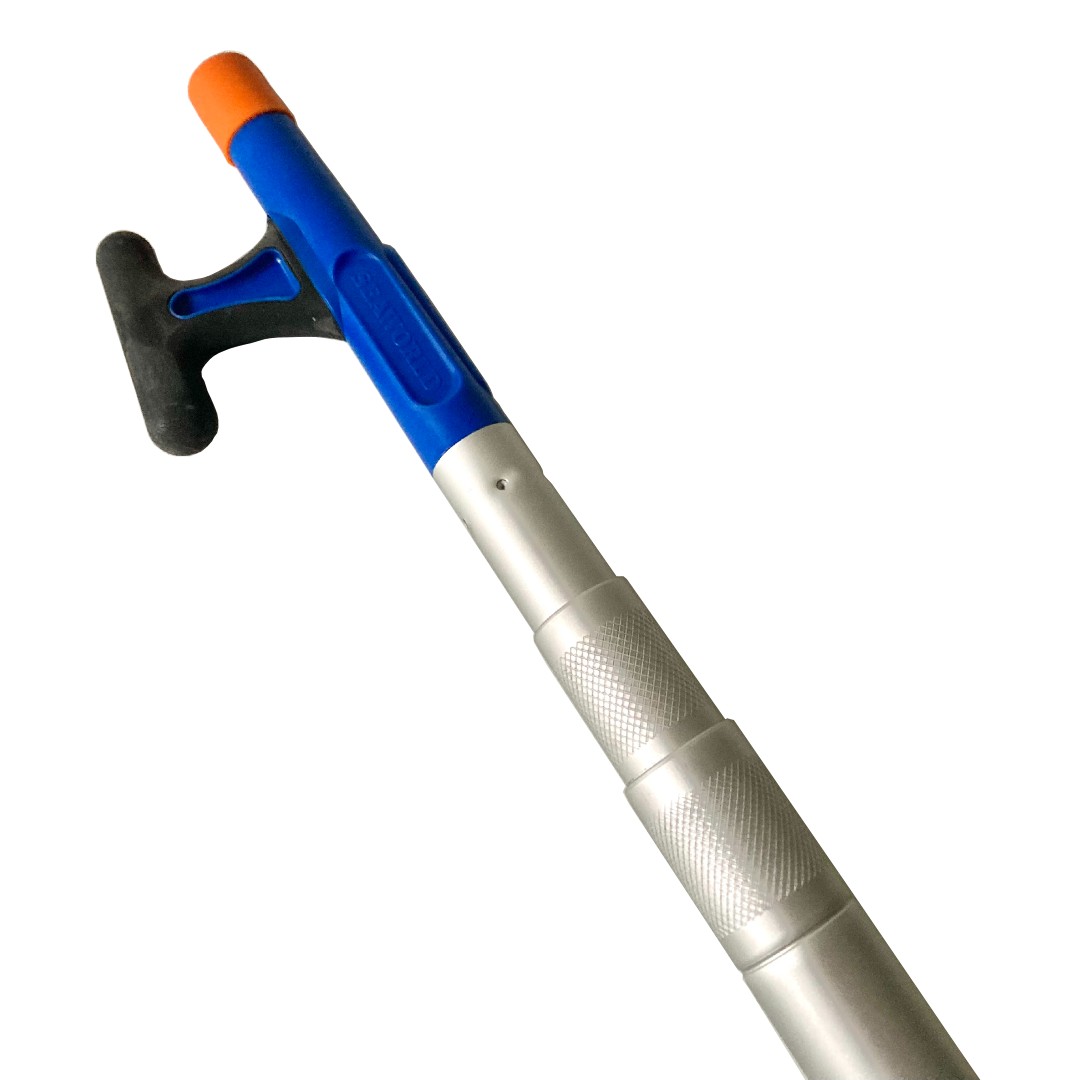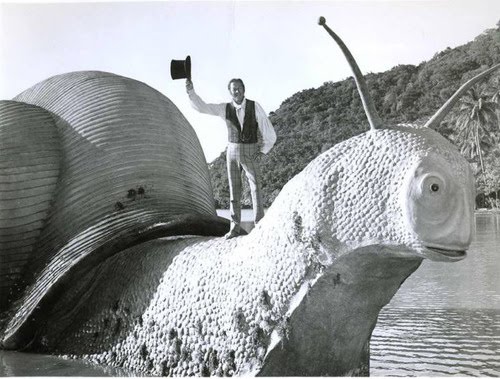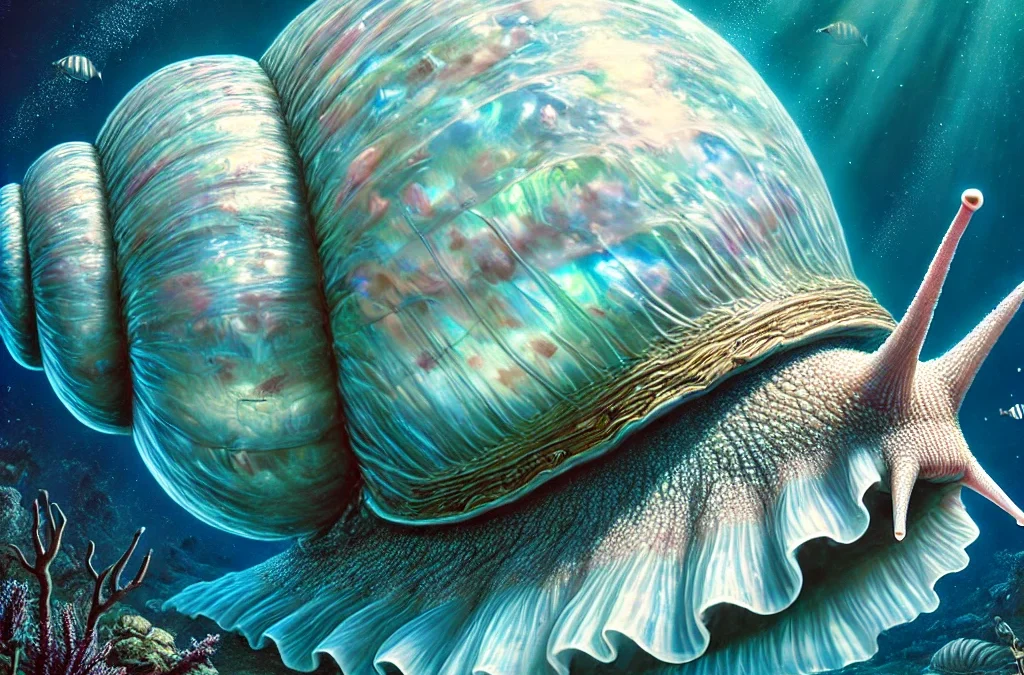※カラフル対訳で紹介している作品はすべてパブリックドメインです。
このサイトで使われている作品のすべては著作権の切れた名作などの全文を電子化して、インターネット上で公開しているProject Gutenberg(プロジェクト・グーテンベルク)、LibriVox(リブリヴォックス、朗読図書館)の作品を出典としています。
翻訳者:satoyayo4080
“Finally he reached the sea-wall and giving us one last sad look he dropped us into the waters of the harbor.
ついにおじいさんは波止場に着くと、最後に僕らを悲しそうに見てから港の水の中へ落としました。
“Never had we realized[~をはっきり理解する] anything like the thrill of that moment, as we felt the salt wetness close over[~を囲んで襲い掛かる] our heads.
顔[頭]が潮の湿りに包まれるのを感じた、その瞬間ほど、ぞくぞくするような感動を実感できたことはありませんでした。
With one flick[ピシッ(パチッ)という音] of our tails we came to life again.
尻尾をひと振りすると僕らは生き返りました。
The old man was so surprised that he fell right into the water, almost on top of us.
おじいさんはとても驚き、僕らの上へと、水の中に落ちてしまいました。
From this he was rescued by a sailor with a boat-hook;
そして、かぎざお を持った船乗りに助けられました。
を持った船乗りに助けられました。
and the last we saw of him, the man in blue was dragging him away by the coat-collar, lecturing him again.
僕らが最後におじいさんを見た時は、再び青い服の男が説教をしながら襟首をつかんで引きずり出していました。
Apparently it was also against the rules of the town to throw dead fish into the harbor.
どうやら死んだ魚を波止場に捨てるのも、町の規則違反だったらしい。
“But we?—What time or thought had we for his troubles? We were free!
でもどうして僕らに、おじいさんの災難のことなんかに時間をかけたり、考えたりするような時間などあるでしょうか? 僕らは自由になったんです!
In lightning leaps, in curving spurts,[噴出する] in crazy zig-zags—whooping, shrieking with delight, we sped[speedの過去形] for home and the open sea!
稲妻みたいに飛び跳ね、カーブを描いて飛び出し、狂ったように大声をあげてジグザグに泳ぎ、嬉しさで歓声をあげながら故郷と大海原に向かって疾走しました。
“That is all of my story and I will now, as I promised last night, try to answer any questions you may ask about the sea, on condition that I am set at liberty[放免, 釈放] as soon as you have done.”
「僕の話は以上です。これから、昨夜の約束通り、海に関するどんな質問にも答えます。ただし、終わったらすぐに僕を解放するという条件でです」
The Doctor: “Is there any part of the sea deeper than that known as the Nero Deep—I mean the one near the Island of Guam?”
先生からの質問:「ネロ・ディープと知られている海よりも深い海域はあるのかい? つまりグアム島付近の海だが」
The Fidgit: “Why, certainly. There’s one much deeper than that near the mouth of the Amazon River.
フィジットの答え:「ええ、もちろん。アマゾン川流域の河口付近に、それよりももっと深いところがあります。
But it’s small and hard to find. We call it ‘The Deep Hole.’ And there’s another in the Antarctic Sea.”
でも、小さくて見つけるのは難しいです。僕らは『深い穴』と呼んでいます。それに南極海にもありますよ」
The Doctor: “Can you talk any shellfish language yourself?”
先生:「きみは貝の言葉は何か話せるのかい?」
The Fidgit: “No, not a word. We regular fishes don’t have anything to do with the shellfish. We consider[~と見做す] them a low class.”
フィジット:「いいえ、一言も。僕ら普通の魚は、貝類とは関係がありません。彼らのことを階級が下だと考えていますから」
The Doctor: “But when you’re near them, can you hear the sound they make talking—I mean without necessarily[~する必要はない] understanding what they say?”
先生:「でも、彼らの近くにいれば、話している音を聞くことができるかい?つまり、貝たちが言っていることは理解してなくてもいいけど」
The Fidgit: “Only with the very largest ones. Shellfish have such weak small voices it is almost impossible for any but their own kind to hear them.
フィジット:「とても大きな貝なら。貝の声はとても弱々しくて小さいので、彼らの仲間同士以外には殆ど聞こえません。
But with the bigger ones it is different.
でも、大きなものだと違います。
They make a sad, booming noise,[雑音] rather like an iron pipe being knocked with a stone—only not nearly so loud of course.”
彼らは鉄パイプを石で叩いたような悲しく、ブーンと鳴るような音を出します。もちろん、それほど大きな音ではないですけど」
The Doctor: “I am most anxious to[~したいと切望して] get down[降りる] to the bottom of the sea—to study many things.
先生:「わしは海の底に潜りたくてたまらないんだ。色々なことを研究したいからね。
But we land animals, as you no doubt know, are unable to breathe under water. Have you any ideas that might help me?”
でも、わしら陸上動物は、知っての通り、水中では呼吸することができない。何かいいアイデアはないかい?」
The Fidgit: “I think that for both your difficulties the best thing for you to do would be to try and get hold of the Great Glass Sea Snail.”
フィジット:「そのどちらの難問にしても大ガラス海カタツムリ を手に入れることが一番だと思います。」
を手に入れることが一番だと思います。」
The Doctor: “Er—who, or what, is the Great Glass Sea Snail?”
先生:「ええと、その大ガラス海カタツムリというのは、誰、というか何かな?」
The Fidgit: “He is an enormous salt-water snail, one of the winkle family,[(動植物分類上の)科] but as large as a big house.
フィジット:「巨大な海水カタツムリで、ヨーロッパタマキビガイの一種ですが、大きな家ほど大きさがあります。
He talks quite loudly—when he speaks, but this is not often.
話すときはとても大きな声で話しますが、しょっちゅうではないです。
He can go to any part of the ocean, at all depths because he doesn’t have to be afraid of any creature in the sea.
彼は海のどんな生き物も怖がらなくてよいから、どこの海のどんな深さのところへでも行けます。
His shell is made of transparent mother-o’-pearl so that you can see through it; but it’s thick and strong.
貝殻は透明な真珠母貝でできているので、透けて見ることができますが、厚みがあり頑丈です。
When he is out of his shell and he carries it empty on his back, there is room in it for a wagon and a pair of horses.
彼が殻から出て、空っぽの殻を背負うと、殻の中には二頭立ての荷馬車が入るほど大きさがあります。
He has been seen carrying his food in it when traveling.”
彼が旅をしているとき、殻の中に食べ物を入れて運ぶのを見たものがいるそうです」
The Doctor: “I feel that that is just the creature I have been looking for.
先生:「まさに、わしが探していた生き物だ。
He could take me and my assistant inside his shell and we could explore[探検する] the deepest depths in safety. Do you think you could get him for me?”
彼ならわしと助手を殻の中に入れることができるから、海底の最も深いところでも安全に探検することができるだろう。そいつを捕まえることはできるかい?」

